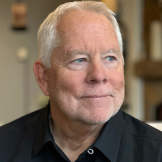There’s something more to leadership in insurance than technical skills or following the latest management trend. It’s about who you are when the pressure is on and the answers aren’t obvious. Over the years, working closely with insurance CEOs and executives, I’ve seen how the hidden cost of leadership quietly shapes our industry. These are the investments of character and humanity that rarely show up in metrics but make all the difference when stakes are high.
Having helped guide organizations through pivotal decisions has demonstrated time after time that the real work of leadership happens beneath the surface. Reaching the next level means leading with authenticity and bringing your full humanity to every obstacle.
Insurance executives face a unique set of pressures. Technology is moving fast, regulations are shifting, and customer expectations are great. But these aren’t just operational puzzles, they are tests of character. The difference between managing and leading becomes clear when you’re faced with a decision that carries weight for your team, your clients, and your reputation. Management can keep the lights on; leadership is what moves people forward, especially when the path isn’t perfectly clear.
I often tell my clients that your title may open the door, but your integrity decides how far you go. In insurance, trust is everything. When you’re making decisions about claims, pricing, or risk, your principles, not your position, are what matter. It’s easy to get caught up in the numbers, but CEO’s and executives who make a lasting impact are the ones who pause, reflect, and act with clarity, even when the market is demanding speed.
Emotional fortitude is essential. That means having the courage to sit with uncertainty and not rush to action just because everyone expects you to. The irony is that executives are often rewarded for quick decisions, but the best leaders are valued for knowing when to wait, when to listen, and when to let clarity emerge from complexity.
I have seen how the pressures of leadership can weigh on even the most experienced CEOs. Self-doubt can creep in, and the responsibility can feel overwhelming. I believe in making it a priority to create a safe haven for open dialogue, where executives can speak candidly about what’s really on their minds, knowing their concerns and challenges will be treated with the utmost discretion. Honest feedback and accountability are essential, not just optional. Often, the most meaningful support I provide is a fresh perspective in helping executives recognize blind spots and build the confidence to lead with authenticity.
For insurance leaders, the legacy you build is not measured by quarterly results alone. It’s measured by the trust you earn and the values you uphold. Align your actions with your core beliefs, and you’ll create ripple effects that extend far beyond your organization.
Let me put it plainly: leadership is not complicated, but it is demanding. The concepts are straightforward — act with integrity, communicate clearly, and put your people first. But living those values day in and day out, especially when the stakes are high, is where the challenge lies. Anyone can read about leadership or talk about it in a meeting. The real test comes when you’re overwhelmed, when the pressure is escalating, and when there’s no obvious answer.
That’s when your character shows up. It’s in those moments that you realize leadership is about making the hard choices, not just the easy ones.
In the end, the hidden cost of leadership is what truly shapes the insurance industry. It’s not the technical skills or the latest management tactics that define lasting success, but the quiet choices leaders make when no one is watching. Bringing your humanity to the table, especially under pressure, is what sets real leaders apart.
When you lead with integrity and courage, you pay a price that isn’t always visible on a balance sheet-but it’s this unseen investment in leadership and character that builds trust, inspires teams, and leaves a legacy that endures. That’s the real work of leadership in insurance, and it’s what makes all the difference.



